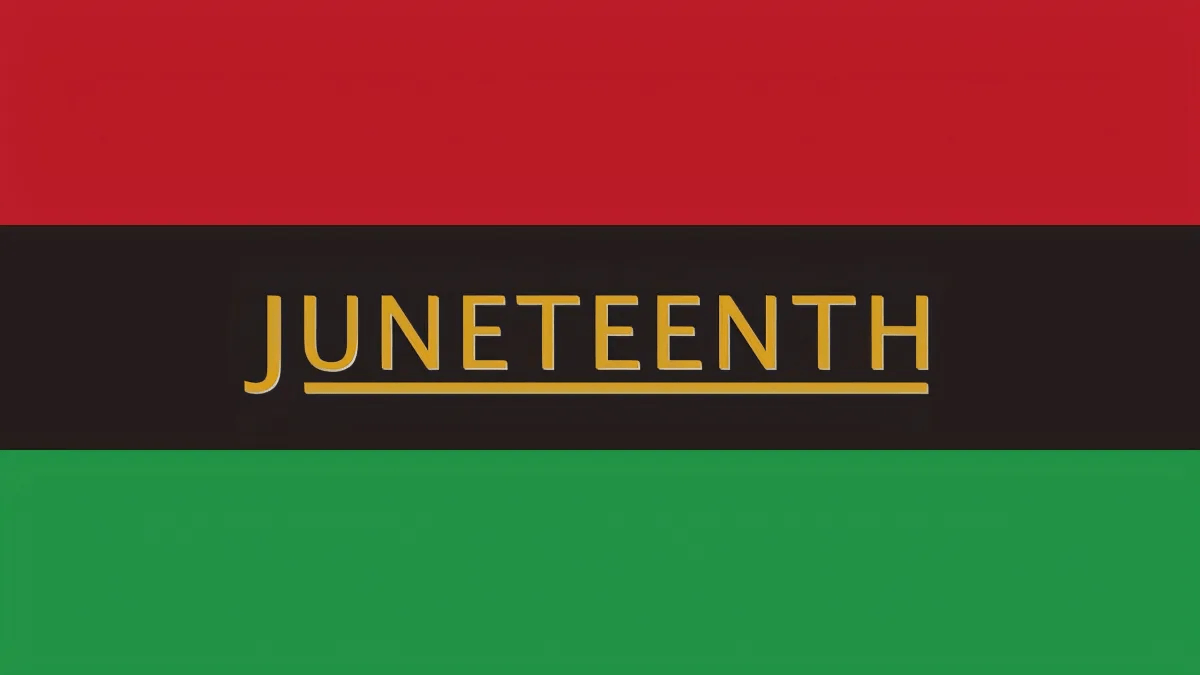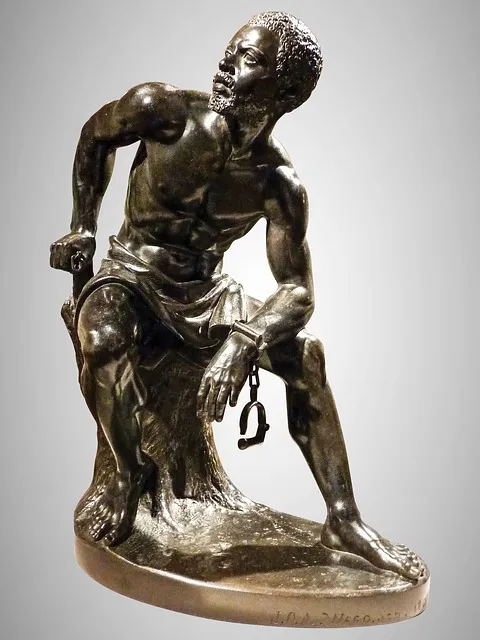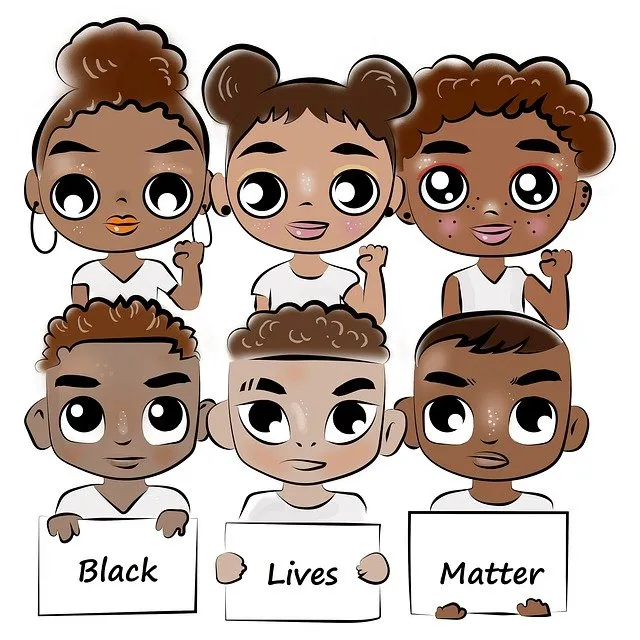The Black Slaves In America Were Lives Lived

Juneteenth was the day of June 19, 1865, where Lincoln's Emancipation Proclamation in Texas was written and signed by the president of the United States that ended slavery of African Americans in the state and now on June 17, 2021, our president Joe Biden has made it a Federal holiday whereas many people were not taught about Juneteenth Day because it was solely a regional holiday.
Unfortunately in Justin Chan's Juneteenth marks an incredibly important moment in U.S history that you probably never learned, In the Know by yahoo! Henry Louis Gates Jr. a history scholar who is African American had stated that many slave owners did not obey the Emancipation Proclamation and had moved to Texas with their slaves until many of them who came to understand that they were free decided to risk their own lives by crossing the river that flowed between Texas and Louisiana.

What was Slavery and how did President Lincoln end it?
Because President Lincoln's Emancipation Proclamation in Texas took 2 and a half years ago to be put into action there is a great sense of urgency among the Black community about how Juneteenth Day should be treated since it was not taken as seriously as before.
As with all Federal holidays, most people have the day off from their jobs which allows them to celebrate the holiday. But it was fiercely warned, that having a barbecue is not an effective way to celebrate the end of slavery while suggesting, however, a more useful alternative like supporting a Black-owned business instead of buying keepsakes that represent powerful remembrances of that revolutionary day.
Now that it is Federal knowledge that Juneteenth Day is the day that slavery has ended and African Americans are now free citizens, it is not only important that we as Americans publicly acknowledge this day, its painful history, and know what it means for the African Americans that are living today, it has become vital that we understand how to celebrate Juneteenth Day.
In Juneteenth decoration Day and the memory of " these honored dead" Black and White by Vern E. Smith a contributor, in the past year 2020 after a white police officer killed an African America man named George Floyd, there was national outrage and a call for racial and social change which made Juneteenth especially vibrant day where it would be considered a paid holiday as well as a federal one.
Celebrating a freed slave is Just as important.
Normally many family gatherings are served with strawberry soda and pie with red rice and watermelon that unfortunately symbolize the brutality of slavery while others celebrate it by engaging in sports such as baseball, fishing, and rodeos, and yes, barbecues.
Barbecues were large outdoor meals that were used to celebrate Independence Day after the Americans won the American Revolutionary War where Food was donated by the community and was enjoyed after the Americans would sing songs and give speeches of patriotism.
Cultural diffusion is not enough...
On June 19, 2021, at the University of Washington Tacoma, Juneteenth is a time to honor, celebrate, respect on 10 am, the University of Washington joined with other campuses to celebrate Juneteenth in Seattle and Bothell by hoisting the Pan African flag and honoring the commitment of equity and inclusion by the releasing Black Opportunity Fund which will help in furthering the prosperous future of their Black students.

However, there are other ways to remember Juneteenth Day:
- by educating oneself and others which is by learning and spreading the word about the Black Lives Matter Movement and watching movies about racism such as The Hate U Give and reading books such as The Fire Next Time by James Baldwin or Between World and Me by Ta- Nehisi Coates.
- I myself would like to make another educational contribution such as reading the books" Roll of Thunder, Hear My Cry" and its sequel " Let the Circle Be Unbroken" by Mildred D. Taylor which is a part of a series called "Logan" and
- " The Cay" by Theodore Taylor. Although these books are not banned for their depiction of the intensity of racism there are moments that are faint in the slightest light that needs to be explored in the educational system because Racism is taught and not an innate human emotion.
- The Raisin in The Sun By Lorraine Hansberry
Opinions and Perspectives
Looking forward to learning more about local Juneteenth celebrations in my community.
The mixture of celebration and solemn remembrance really captures what this day should be about.
It's crucial that we pass these stories and their significance to the next generation.
Reading about these events makes me think about ongoing struggles for justice.
This history shows why voting rights and education access remain such important issues.
I never knew about the symbolism of red foods in Juneteenth celebrations before reading this.
The importance of community gathering comes through strongly in this article.
Watching The Hate U Give helped me understand modern connections to this history.
The article really emphasizes how recent this history is. It wasn't that long ago.
It's interesting how regional this celebration was for so long. Makes me wonder what other important historical events we're missing.
The suggested reading list is great. James Baldwin's work remains incredibly relevant today.
Learning about Juneteenth should make us examine other hidden parts of our history.
The connection to current events makes this history feel very present and relevant.
I'm glad the article addresses appropriate ways to celebrate. It's important to be respectful of the day's significance.
This reminds me of how long it took for Martin Luther King Jr. Day to become a federal holiday too.
The food traditions mentioned are fascinating. Each element has such deep meaning.
We should remember that Juneteenth isn't just Black history, it's American history.
Reading about the University of Washington's initiatives gives me hope for institutional change.
The article could have delved deeper into how Juneteenth celebrations evolved over the years.
I love that more people are learning about Juneteenth, but we need to make sure the true meaning isn't lost.
The delay in Texas shows how information suppression was used as a tool of oppression.
Those books mentioned in the article are crucial reading. The Hate U Give really opened my eyes to modern day struggles.
Just because it's a federal holiday doesn't mean the work is done. We need to keep pushing for real systemic change.
The mention of crossing rivers to freedom reminds me of other incredible stories of resistance and survival.
I appreciate how the article connects historical events to current racial justice initiatives.
The Black Lives Matter movement has really helped bring attention to Juneteenth and its significance in our ongoing fight for equality.
In my city, we have community readings of slave narratives on Juneteenth. It's powerful to hear these stories spoken aloud.
This article makes me think about how we can better integrate this history into our education system.
The fact that slave owners actively defied the Emancipation Proclamation really shows how deeply entrenched racism was and still is.
I'm curious about how different regions of the country celebrate Juneteenth. Does anyone have experience with various local traditions?
The suggestion to read books about racism is great, but we should be doing this year-round, not just around Juneteenth.
You make a good point about commercialization. I already see companies trying to profit off Juneteenth without understanding its significance.
The Pan African flag raising is such a powerful symbol. These public acknowledgments matter.
While I appreciate the federal holiday status, we need to ensure it doesn't become commercialized like many other important commemorations.
The article mentions Roll of Thunder, Hear My Cry. That book changed my perspective when I read it as a teenager.
Supporting Black-owned businesses is a meaningful way to celebrate. I've been compiling a list of local shops in my area.
My grandmother used to tell us stories about Juneteenth celebrations in Texas. The traditions meant so much more when I learned the history behind them.
What strikes me most is the 2.5 year delay in Texas receiving the Emancipation Proclamation. That's 2.5 years of continued enslavement after freedom was declared.
The connection between George Floyd's murder and Juneteenth becoming a federal holiday shows how current events can push historical recognition forward.
Anyone else find it frustrating that we weren't taught about this in school? I only learned about Juneteenth as an adult.
The red foods traditionally served during Juneteenth have such deep symbolic meaning. It's important we understand these traditions while celebrating.
Just finished reading Between World and Me by Ta-Nehisi Coates. It should be required reading in schools alongside this history.
The University of Washington's Black Opportunity Fund is a great step forward. We need more concrete actions like this to create real change.
I actually disagree about the barbecue point. Coming together as a community to share food and stories has always been an important part of Black culture and resistance.
Reading this article opened my eyes to how we should be celebrating Juneteenth. A barbecue seems too casual for such a meaningful day.
Learning about how slave owners deliberately moved to Texas to avoid freeing their slaves makes my blood boil. Those people risked their lives crossing rivers to find freedom.
I'm glad Juneteenth is finally getting the recognition it deserves as a federal holiday. It's shocking how many people still don't know about this significant part of our history.